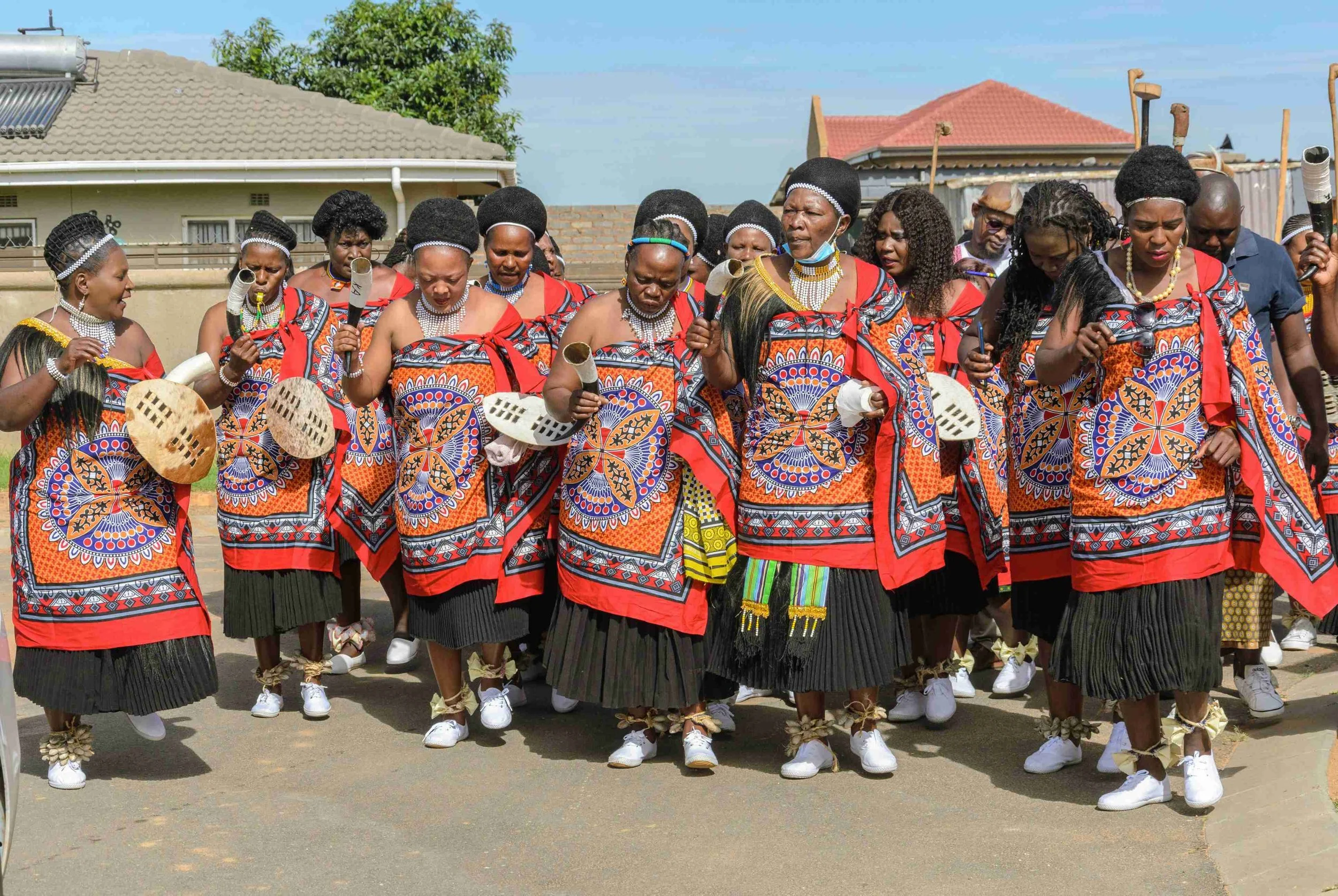Travel Requirements for Americans Traveling to Ghana
Ghana is a country that captures your heart from the moment you arrive. And those who live here, they can’t wait to welcome you.
But before you can start dreaming about jollof rice and kente cloth, let's get down to the nitty-gritty of getting there.
This guide is your friendly rundown of everything an American traveler needs to know about planning a trip to Ghana. We’ll cover the must-dos and the must-haves, so you can focus on the fun part: the adventure.
Do Americans Need a Visa to Travel to Ghana?
This is often the first question on any traveler's mind, and for good reason. Let's clear the air: Yes, as a U.S. citizen, you absolutely need a visa to enter Ghana.
You can't just hop on a plane and expect to get a stamp at the airport. Ghanaian law requires all visitors to have a valid entry visa issued by a Ghana diplomatic mission or consulate abroad before arriving. This is not a "visa on arrival" situation, so planning ahead is key.
The visa application process can seem a bit daunting, but it's manageable.
What You’ll Need
Your passport
A completed visa application form
Passport-sized photos
Proof of your travel itinerary
An invitation letter or hotel booking
Yellow Fever vaccination certificate
The application fees vary depending on the type of visa (single entry, multiple entry, etc.) and the processing time (standard vs. expedited). Always check the official embassy website for the most current fee schedule and application requirements.
The best advice? Start the visa process early! The standard processing time is about 15 business days, so give yourself plenty of room to avoid any last-minute stress.
How Much Does It Cost to Travel from the US to Ghana?
This is the big one, and the answer isn't a simple number. The cost of a trip from the U.S. to Ghana can vary wildly based on several factors, with airfare being the single largest expense.
1. Flights
This is where the price can fluctuate the most. A round-trip ticket from a major U.S. city to Accra (Kotoka International Airport - ACC) can range from a good deal of around $800 to well over $1,500, and sometimes even more, depending on the time of year and how far in advance you book.
When to travel: If you're looking for the best prices, aim for the shoulder seasons (spring and fall). The peak travel season is typically December through February, when many people from the Ghanaian diaspora return for holidays, and prices skyrocket.
Where to fly from: Major international airports like New York (JFK), Washington D.C. (IAD), and Atlanta (ATL) often have more direct and competitively priced flights compared to smaller regional airports.
Airlines: Major carriers like Delta, United, Ethiopian Airlines, and British Airways all fly routes from the U.S. to Ghana. It's always a good idea to use flight comparison websites to find the best deals.
2. Visa Fees
As we mentioned, visa fees can be a few hundred dollars. Remember to budget for this, as it's a non-negotiable part of the journey.
Don't forget to factor in the cost of required and recommended vaccinations. Your health insurance might cover some of these, but it's not a guarantee. The Yellow Fever vaccine and antimalaria medication can add to your total.
3. On-the-Ground Expenses
Once you land in Ghana, your spending will depend on your travel style.
Accommodation: You can find a wide range of options, from budget-friendly guesthouses and hostels (starting around $20-$40 per night) to mid-range hotels ($70-$150 per night) and luxury resorts (over $200 per night).
Food: Eating like a local is not only delicious but also incredibly affordable. Street food and small local restaurants can cost just a few dollars for a hearty meal. Dining at more upscale restaurants in Accra will be more expensive but still generally cheaper than in the U.S.
Transportation: Ride-sharing apps like Uber and Bolt are widely available in Accra and other major cities, offering a safe and convenient way to get around. Public transport like "tro-tros" (minibuses) are very cheap but can be overwhelming for a first-time visitor.
So, what's a realistic budget? A two-week trip to Ghana can cost anywhere from $2,000 to $4,000 or more per person, depending on your flight costs and travel style. A budget of around $2,500 (not including airfare) for a two-week trip is a good starting point for a comfortable but not extravagant experience.
How to Travel from the US to Ghana
The most common and practical way to travel from the U.S. to Ghana is by air. There are no direct flights from all U.S. cities, so a layover is often part of the journey.
Major Airlines and Routes
Delta Airlines: Offers direct flights from New York (JFK) to Accra (ACC). This is often the most convenient option if you live in the Northeast or can easily connect to JFK.
United Airlines: Provides direct service from Washington D.C. (IAD) to Accra (ACC).
Ethiopian Airlines: A popular choice with a major hub in Addis Ababa, Ethiopia. You'll typically fly from a U.S. city to Addis Ababa and then on to Accra.
British Airways, Turkish Airlines, Royal Air Maroc, and others: These airlines offer routes with layovers in their respective hub cities (London, Istanbul, Casablanca, etc.). These can sometimes be more affordable, but the travel time will be longer.
Travel Time
Be prepared for a long travel day! A direct flight from the East Coast to Accra is around 10-12 hours. Flights with layovers can extend the total travel time to 15-20 hours or more. Pack a good book, some snacks, and a neck pillow, and get ready for the adventure to begin the moment you board the plane.
Health Requirements
This is a critically important section, so pay close attention. Your health and safety are a top priority, and Ghana has specific requirements you must meet before and during your trip.
Yellow Fever Vaccine
This is non-negotiable. All travelers over nine months of age must have a valid Yellow Fever vaccination certificate to enter Ghana. You will be asked to show this upon arrival at the airport. The vaccine is valid for life, but make sure you get it well in advance of your trip and keep the certificate in a safe place.
Recommended Vaccinations
While Yellow Fever is the only required vaccine, the Centers for Disease Control and Prevention (CDC) and other health organizations highly recommend the following for travel to Ghana:
Hepatitis A and B
Typhoid
Routine vaccines
Malaria Prevention
Ghana is a high-risk area for malaria, a serious and sometimes fatal disease spread by mosquitoes. There is no vaccine for malaria, so prevention is key.
Antimalarial medication
Mosquito repellent
Protective clothing
Mosquito nets
Food and Water Safety
"Traveler's stomach" is a common ailment. To avoid it, stick to bottled or purified water. Be cautious with street food and raw vegetables, and choose hot, well-cooked meals.
Conclusion
Ghana is a country that captures your heart from the moment you arrive. The warmth of the people, the vibrant culture, and the rich history create an unforgettable experience.
Yes, there are a few bureaucratic hoops to jump through; the visa application, the health requirements. But every single one of them is worth it for the journey that awaits. Take the time to plan, gather your documents and cross out each travel requirement one step at a time.
Akwaaba (Welcome) in advance.
Download my free travel guide to navigating Accra- Ghana from hotels to stay at, restaurants to try out, how to stay safe when visiting and nightlife recommendations for my fellow night owls who would love to go dancing.
Hello, fellow adventurers! I'm Rashida, your not-so-typical travel guide. Join me for laughs, mishaps, and perhaps a questionable decision or two (because let's face it, those always make for the best stories). Learn More










